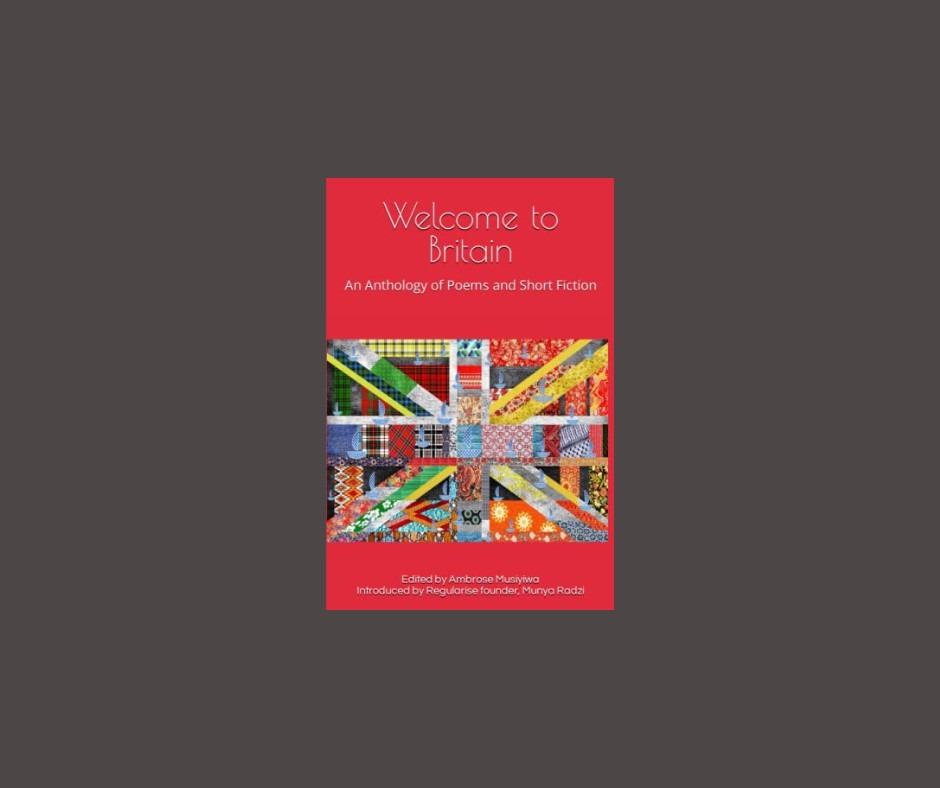‘Welcome to Britain’: A captivating cluster of meaningful poetry
In the introduction to this anthology, Munya Radzi states that “at the heart of Welcome to Britain is the recognition that the myths and fictions that Britain likes to tell about itself need to be subverted.” As historical events have swept past us throughout the 21st century, more and more of the British population have sought to find ways to reckon with and fight against these myths and fictions. And whilst the direct political action that has been taken by some groups, ranging from the Just Stop Oil Protests to the waves of strikes that have spread to different sectors of the economy, a growing number of people have turned to the to combat these ideals. Even though these forms are not an entirely new concept, the central voices are changing with the people who are often oppressed by these structures, taking their voices back to highlight their frustration with these flawed systems.
The results are often […] deeply painful, creating a loop where people end up pushing one another aside in order to grasp onto this false ideal of ‘Britishness’.
This is something that Welcome to Britain excels at. Many of the poems ooze this justified anger at the corrupt systems that the writers have been forced into and their attempts to break out of them. Some of the poems achieve this by taking archetypal British ideals and subverting them to highlight the corruption that bleeds throughout them. Marcus Christopherson’s ‘Queuing’ looks at the stereotype often associated with British people waiting to get a cup of tea and focuses instead on the attempts of people of colour to be seen as part of the fabric of the country, only to be tossed aside for a white counterpart. The results are often, as Christopherson highlights, deeply painful, creating a loop where people end up pushing one another aside in order to grasp onto this false ideal of ‘Britishness’. A similar idea is explored in Rosario Guimba-Stewart’s ‘The Paper’, which centres around a woman receiving immigration papers that would allow her to move to Britain and reunite with her family. On the surface, it is joyous as the woman celebrates the fact that “her rights would be restored” but there is an underlying sadness to it. The fact that these papers are needed to confirm connections that were already so real, that “the love that kept me going” wasn’t enough to keep them together when it was a viable ideal for so many others.
The consequences may be different to both groups but now they have begun to spread more widely, they are being recognised for what they are.
Other pieces within the collection opt for a far more blunt approach. They look at these institutions with a disdain that is palpable throughout their prose. ‘What a Wonderful War’ by Ambrose Musiyiwa bleakly documents how a war that is detrimental to the lives of so many is a profit incentive for energy companies and wealthy governments. Musiyiwa’s free-verse poem looks at the cycle in which these wars exist, draining the less wealthy countries for the benefit of the global north but never turning attention away from their own allies, for whom helping them fight in wars is far more beneficial to their own, pre-installed ideals. Judith Amanthis’s ‘apocalypse already’ seeks to look at this cycle too, but not only as a malicious force, rather one that is already beginning to crumble. Throughout this stream-of-consciousness poem, with no stanzas or punctuation to provide the reader with a moment to stop, Amanthis documents a compelling conversation between an uber driver and passenger talking about “your end of empire.” They are discussing both how the British Empire has impacted their way of living but also how the hurt it has administered has trickled upwards towards the people who were originally the beneficiaries of the Empire. The consequences may be different to both groups but now they have begun to spread more widely, they are being recognised for what they are.
As a piece of powerful literature, serving to uplift the voices of the marginalised and oppressed, Welcome to Britain succeeds in every feasible way. It has stretched its scope out to writers from all over the world and has emphasised their experiences all of which, through sharp and beautiful writing, is able to refer back to the oppressive systems that both them and their art are fighting against.
4/5 stars

Comments